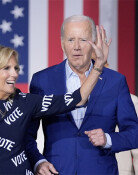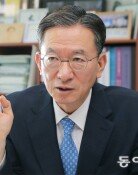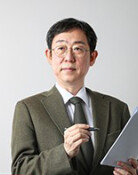Souths Missile Response Criticized
The Korean governments approach to the North Korean missile launch is a crystal-clear display of all the characteristics this countrys 2006 diplomacy has shown. The issue over the missile crisis is losing its point and the Korea-U.S.-Japan coordination is nowhere to be found.
Some link this state of affairs with Korea making the mistake of insisting on our own way regardless of what the major players in the international community hold in common belief. This rings true with the idea of peripheral nation mindset argued by Kim Yong-gu, president of Hallym Academy of Science in Hallym University. Kim had noted that Unless we overcome this peripheral nation mindset, ideologies such as self-determination can come before national interest in diplomatic policies and we may end up reverting to medieval diplomacy.
Losing Focus on the Issue-
Washington diplomats were less than welcoming about Cheong Wa Daes angry retort to a senior Japanese officials remarks on the need of a preemptive strike against North Korea, or the Korean medias series of articles that followed on the governments response. They point out that despite the main issue being the crisis over the North Korean missiles, South Korea is instead diverting its furor to an incidental comment by the Japanese. The Buddhist scripture has a fitting story of how when one guides somebodys eyes to the moon with ones finger, the person sees the finger only and not the moon.
Both The New York Times and The Wall Street Journal covered on July 11 the utter lack of interest on national security by Koreas young generations. Especially eye-catching was the point that although a total of 4.2 million enraged emails flooded the FIFA website over an off-side call in one of South Koreas World Cup matches, Korean youngsters seemed to be remaining silent on the missiles launched by the North.
Hasty Declaration of Stance-
Many also deem that South Korea has been too hasty in making public its opposition of the anti-North Korean U.N. Security Council resolution led by Japan. Concerns have been raised that the announcement, taking place soon after China had stated its disapproval, would bring the misinterpretation that it had been made taking advantage of Chinas opinion as a shield. Voices from the United Nations diplomats in New York have suggested that South Korea will be put in a tight spot if the Security Council sees through a vote on the resolution and China abstains instead of vetoing it.
Such rash declarations by the government have not been limited to recent days. At a press conference on North Koreas counterfeiting of U.S. dollars, it had said Just because one party argues it that does not make the claim (North Koreas distribution of counterfeit currency) true. Right before North Korea launched the Daepodong II missile, the administration had also embarrassed itself by saying that it could be a satellite instead of a missile.
Such statements made too quickly often transformed later into the announcement that There is no dissension between South Korea and the U.S. The invariable pattern of inappropriate assertions by the government objection by the U.S. Korea mitigating the expression concealment of the issue has become typical of the rhetoric diplomacy between the two countries.
Tripartite Coordination Shattered-
The basic principle of South Koreas approach to resolving the North Korean nuclear issue was to draw on the coordination between itself, the U.S. and Japan, and extending the circle of support to China and Russia. Up until the Kim Dae-jung administration, the Trilateral Coordination and Oversight Group (TCOG) conferences had served as a forum where South Korea, the U.S. and Japan debated and harmonized their ideas. However, it has been more than three years since the last meeting of TCOG.
Japans aims to become a major military power and the new alliance between the U.S. and Japan, as the U.S. makes a fresh evaluation of Japans strategic values, certainly have played a part. However, a diplomatic source from Washington commented on July 11 that the reason for the crumbling tripartite coordination lies with none other than the lack of enthusiasm on the part of the Korean government.
Not Enough Trust in the U.S.-
The Security Councils resolution against North Korea brought forward by Japan is being delayed over making the decision to invoke Chapter VII of the U.N. Charter, as Articles 42 and 51 state the possibility of using military force.
However, the U.N. is proposing Seoul with the question of whether Korea will accept a resolution that does not invoke Chapter VII, meaning that the Korean government comes across as not trusting the word of Washington that the U.S. has no intention to take military action against North Korea.
Yet a Security Council resolution will in effect be a limited law that carries legal binding force against missile systems that currently is lawless territory. If the Daepodong II test-fire has failed, North Korea will be strongly tempted to make a second try, and the U.S. and Japan plan to pass the resolution before that in order to prevent such escapades by Pyongyang. The war on Iraq had also been triggered in part by the Iraqi regimes noncompliance to the 16 resolutions of the Security Council.
France Also Agreed-
A former Presidential Secretary for Foreign Affairs and National Security recently remarked, Pay attention to the French agreement to the resolution as this means even France, who had time and again stood opposite the U.S. on the U.N. stage, has understood the significance of an intercontinental ballistic missile test-fire by a state which has declared itself to be nuclear-capable. Of course, it may be interpreted as France being less reluctant to agree with the U.S. on North Korea, with which it has less business than the Middle East in areas such as arms-trading or industrial investment.
Jean Marc de la Sablier, French Ambassador to the U.N. suggested on July 11 the difficult alternative of first adopting a Chairmans Statement and then discussing the resolution. For France, the chair-country of the Security Council for July, a role which rotates monthly, this decision would come from attempting to retain harmony on the Council. Along the same line lies the July 11 report by the French daily Le Figaro which cited a senior diplomat as saying Reaching a consensus is more important than being hasty.
However, the Chairmans Statement must be stricter than the one China circulated to Security Council member countries, and it must determine missile launches by North Korea as a threat, said the Ambassador.







